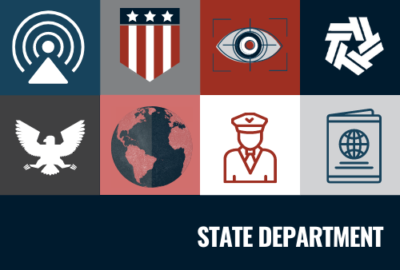 Exclusive
Exclusive Another federal pension fix buried in the NDAA!
Goodies keep surfacing in the nearly 4,000-page National Defense Authorization Act.
Congress can be effective with details even as it screws up the big picture. For instance, Congress added four or five trillion dollars to the national debt in the last couple of years. Who’s counting, anyway? But the just-ended 117th Congress looked after a couple of important details concerning the federal workforce.
One provision in the Defense authorization bill that squeezed into law just before is not all that widely known. Attorney Anthony Kuhn of the Tully Rinckey firm in Washington, D.C. pointed it out to me. He noted there is a lot of information online at the Defense Finance and Accounting Service (DFAS). It has to do with survivor benefits for spouses of reservists. Until Congress corrected this, if the reserve member died before 60, and had not elected Survivor Benefit Plan, then whatever vested pension the deceased had would forever be unavailable to his or her survivor.
The problem was, only under very limited circumstances could a current or future pensioner without the survivor benefit option actually change his or her mind.
“You had to elect SBP protection at the time that you got out of the military,” Kuhn explained. You could also change your elections within a year of a life-changing event such as marriage or divorce, but not at any other time.
“And nobody knows this,” Kuhn added.
Moreover, there’s only been one open season in the history of the pension program, Kuhn said. What the NDAA did is establish a year-long open season for changing pension elections, for those wanting to add — or, by the way remove — the Survivor Protection Plan. Survivor benefits do come with a premium you’ll have to pay.
This soon after enactment of the legislation, specific policies, rules and forms are quite fully baked. DFAS states it as well as I can: “DFAS is working to prepare the forms, policies, and processes required to facilitate this SBP Open Season. We will not be able to answer specific questions until we obtain official DoD guidance on the new law, policy, and processes. It will take some time for all of the details to be determined. We appreciate your patience as we work through the preparation.”
When all the ingredients are in the cake mix, the open season runs to Jan. 1, 2024.
Congress also fixed a nagging problem for a relatively tiny number of federal employees working overseas. As Federal News Network’s Drew Friedman and Jory Heckman reported the other day, those teleworking from overseas, mostly State or Defense Department connected, have not been getting locality pay. The NDAA fix doesn’t fundamentally change the contract between government and its employees. The granting of locality pay to so-called DETOs — domestic employees teleworking overseas — falls into the honey-dos department. A nagging detail. Like my need to paint the top edge of the workwork around an archway. Every time I walk down the stairs in my house, I see that strip of wood the painter annoyingly missed.
Except DETOs have real money at stake. In some cases, the variance between what they earn overseas and what they’d earn stateside reaches $25,000 per year.
Here again, the beneficiaries must wait a bit while the federal HR machinery cranks up and spits out the detailed rules and program the computers.
Every year there’s talk of comprehensive civil service reform. That’s too much for Congress, as it operates in this century. Fixing a problem for 245 overseas employees required a few lines in a 3,854-page bill. I’ll bet the DETOs won’t mind.
Copyright © 2025 Federal News Network. All rights reserved. This website is not intended for users located within the European Economic Area.
Tom Temin is host of the Federal Drive and has been providing insight on federal technology and management issues for more than 30 years.
Follow @tteminWFED
Related Stories






